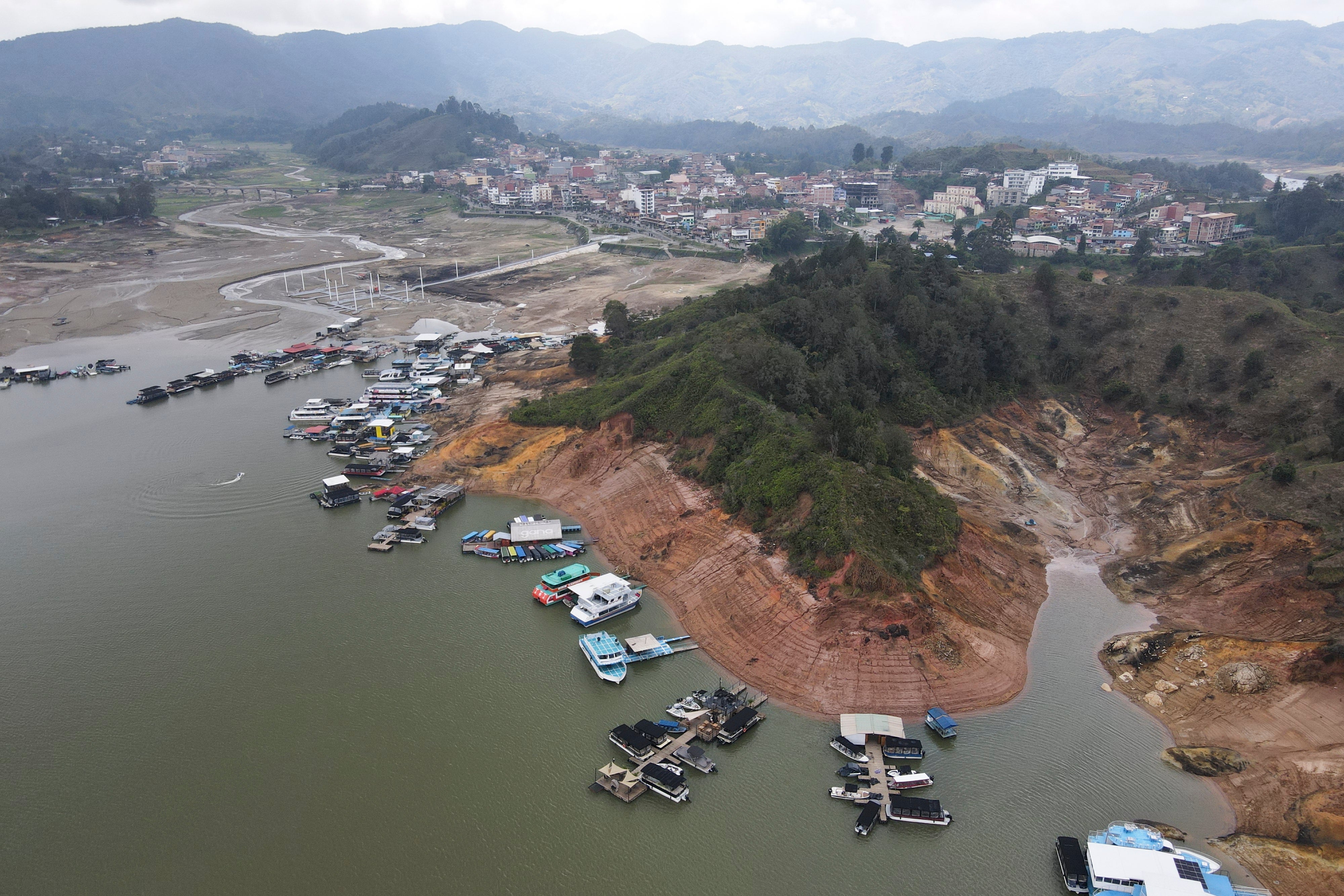Colombia rolls out new incentives to cut electricity consumption as dry weather persists
Colombia’s government is rolling out new incentives to reduce electricity consumption in the South American nation, which has been hit by a drought that has diminished the capacity of local hydroelectric plants and brought officials close to imposing power cuts

Your support helps us to tell the story
From reproductive rights to climate change to Big Tech, The Independent is on the ground when the story is developing. Whether it's investigating the financials of Elon Musk's pro-Trump PAC or producing our latest documentary, 'The A Word', which shines a light on the American women fighting for reproductive rights, we know how important it is to parse out the facts from the messaging.
At such a critical moment in US history, we need reporters on the ground. Your donation allows us to keep sending journalists to speak to both sides of the story.
The Independent is trusted by Americans across the entire political spectrum. And unlike many other quality news outlets, we choose not to lock Americans out of our reporting and analysis with paywalls. We believe quality journalism should be available to everyone, paid for by those who can afford it.
Your support makes all the difference.Colombia’s government on Tuesday rolled out new incentives to reduce electricity consumption in the South American nation, which has been hit by a severe drought that has diminished the capacity of local hydroelectric plants and brought officials close to imposing power cuts.
The ministry of mines and energy said that in the following weeks homes and businesses that exceed their average monthly electrical consumption will be charged additional fees for every extra kilowatt-hour used, while those who use less electricity than usual will be rewarded with discounts.
Officials in Colombia hope the measures will help to reduce consumption and help local reservoirs recover.
“We want to stop the waste of electricity, especially among large consumers,” Andrés Camacho, Colombia's mines and energy minister, wrote on X. He added that a decision to shut down government offices last Friday and a recent uptick in rain raised the level of local reservoirs by about 2% over the weekend.
Colombia usually gets 70% of its electricity from dams, but a prolonged dry season, caused by the El Niño weather pattern, has boosted imports of fossil fuels and made the country more dependent on power plants that run with natural gas and currently supply 50% of the nation's electrical needs.
The dry season, which began at the end of last year, has also threatened supplies of tap water.
Officials in Colombia's capital, Bogotá, began rationing water last week by dividing the city into nine districts that are being cut off from the water supply for 24 hours, on a rotating basis.
Mayor Carlos Fernando Galán last week said the city will impose fines on people who wash their cars on the streets and conduct other activities that are deemed to be wasteful. He also asked residents to refrain from taking daily showers as is customary in Colombia, especially on days when they’re not going to leave their homes.
Warming temperatures in the Pacific Ocean usually cause heavy rains along South America’s west coast, but they can also lead to droughts in the interior of the continent, including in the northern part of the Andes mountains.
This year’s prolonged dry season has also led to power cuts in Ecuador, which usually draws 75% of its electricity from hydroelectric power.
Homes and businesses in Ecuador’s main cities were cut off from the power grid for at least three hours each day last week, with President Daniel Noboa ordering businesses and schools to shut down Thursday and Friday as part of an effort to save energy and help reservoirs recover. The power cuts have continued this week in several cities, including the capital, Quito, and are affecting hospitals, schools and factories.
___
Follow AP’s coverage of Latin America and the Caribbean at https://apnews.com/hub/latin-america